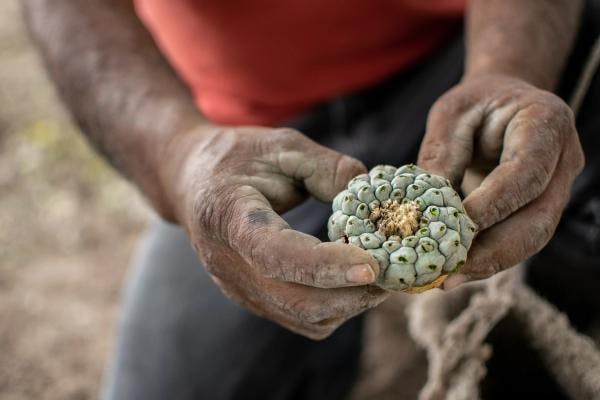Raul Luna / Shutterstock
La presión para legalizar las sustancias psicodélicas ha ignorado a las comunidades indígenas
Aunque la legalización de las sustancias psicodélicas es un paso positivo hacia la reforma de políticas mundiales referidas a drogas, ésta no debe hacerse a expensas de las comunidades indígenas, que vienen utilizando plantas psicoactivas para la curación emocional, física y espiritual desde hace siglos. Más información, en inglés, está disponible abajo.
On April 6, the California Senate approved a bill to decriminalize psychedelics including psilocybin mushrooms, DMT, ibogaine, LSD, and MDMA. The legal changes reflect a growing awareness in the world of Western medicine about the therapeutic potential of psychedelics. A number of recent studies have found substances like mushrooms, LSD, and MDMA to be beneficial for issues like anxiety, depression, and PTSD, and state and local governments around the country have recently made efforts toward decriminalizing or outright legalizing plant-based psychedelics.
However, psychedelics as healing agents isn’t a new concept. For centuries, Indigenous people have used psychoactive plants in ceremonies for emotional, physical, and spiritual healing. Native American tribes Indigenous to the U.S. have primarily used peyote in these contexts, while tribes in South America have worked with other plants like ayahuasca and San Pedro.
Decriminalization would mean police could no longer arrest people for possessing or using these substances — but the assumption that this would be a positive thing for Indigenous communities belies the issue’s history and complexity.
